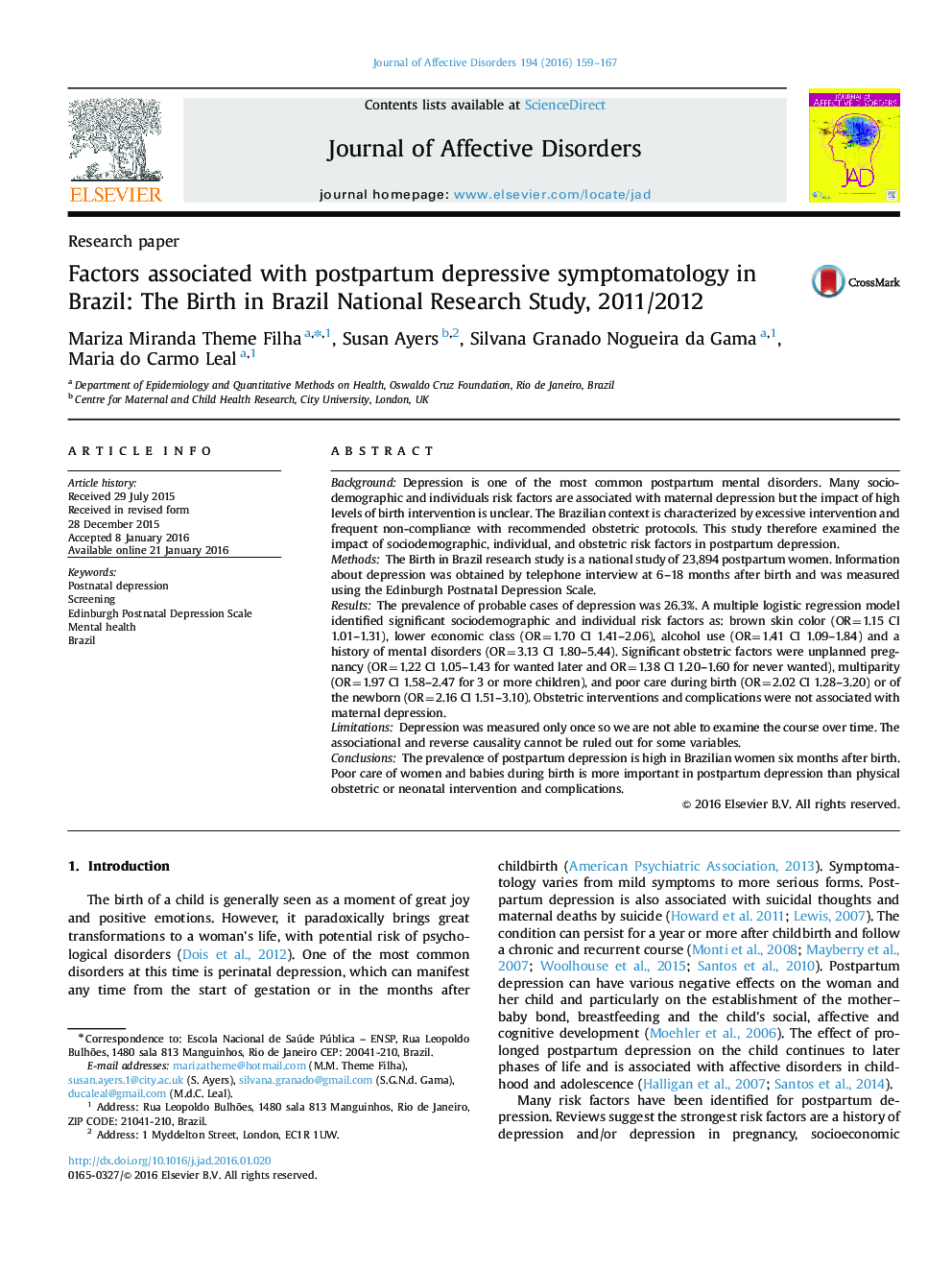| Article ID | Journal | Published Year | Pages | File Type |
|---|---|---|---|---|
| 4185869 | Journal of Affective Disorders | 2016 | 9 Pages |
•Maternal depression is one of the most common mental disorders during pregnancy or after childbirth.•In this study the prevalence of symptoms of maternal depression between 6 and 18 months postpartum was 26.3%.•Prior history of mental disease was the strongest risk factor associated with maternal depression.•Type of birth and obstetric interventions did not present association with symptoms of maternal depression.
BackgroundDepression is one of the most common postpartum mental disorders. Many sociodemographic and individuals risk factors are associated with maternal depression but the impact of high levels of birth intervention is unclear. The Brazilian context is characterized by excessive intervention and frequent non-compliance with recommended obstetric protocols. This study therefore examined the impact of sociodemographic, individual, and obstetric risk factors in postpartum depression.MethodsThe Birth in Brazil research study is a national study of 23,894 postpartum women. Information about depression was obtained by telephone interview at 6–18 months after birth and was measured using the Edinburgh Postnatal Depression Scale.ResultsThe prevalence of probable cases of depression was 26.3%. A multiple logistic regression model identified significant sociodemographic and individual risk factors as: brown skin color (OR=1.15 CI 1.01–1.31), lower economic class (OR=1.70 CI 1.41–2.06), alcohol use (OR=1.41 CI 1.09–1.84) and a history of mental disorders (OR=3.13 CI 1.80–5.44). Significant obstetric factors were unplanned pregnancy (OR=1.22 CI 1.05–1.43 for wanted later and OR=1.38 CI 1.20–1.60 for never wanted), multiparity (OR=1.97 CI 1.58–2.47 for 3 or more children), and poor care during birth (OR=2.02 CI 1.28–3.20) or of the newborn (OR=2.16 CI 1.51–3.10). Obstetric interventions and complications were not associated with maternal depression.LimitationsDepression was measured only once so we are not able to examine the course over time. The associational and reverse causality cannot be ruled out for some variables.ConclusionsThe prevalence of postpartum depression is high in Brazilian women six months after birth. Poor care of women and babies during birth is more important in postpartum depression than physical obstetric or neonatal intervention and complications.
